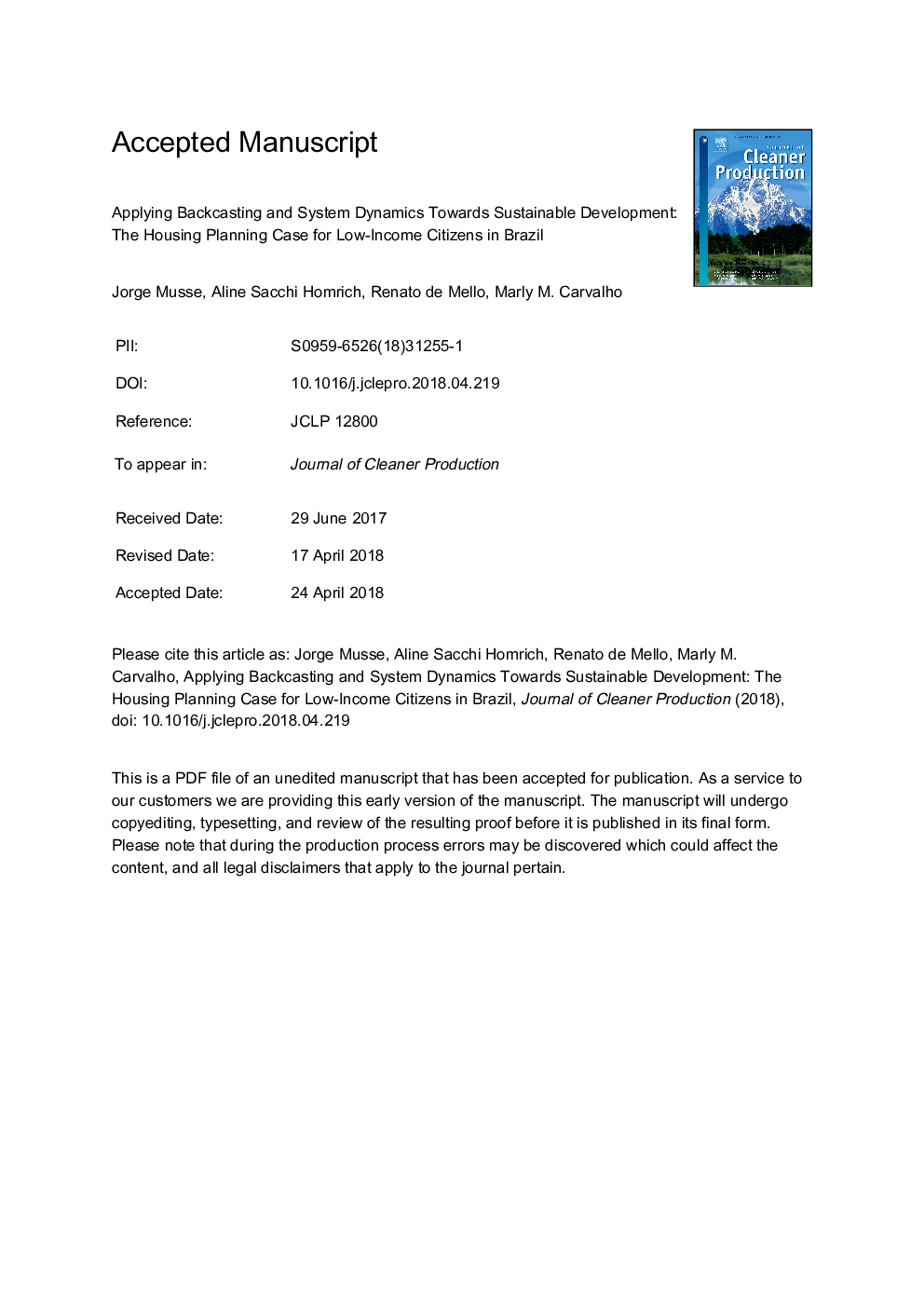| Article ID | Journal | Published Year | Pages | File Type |
|---|---|---|---|---|
| 8094377 | Journal of Cleaner Production | 2018 | 40 Pages |
Abstract
This study presents a combined method of backcasting and system dynamics. It is designed to support complex decision-making that impacts sustainable development and involves multiple stakeholders. The study investigates the city housing planning problem for low-income citizens, specifically families with a monthly income that totals between one and three Brazilian minimum wages (from ca. 275 to 830 dollars). The case-based research encompasses modelling, simulation and stakeholder participation in the housing planning sector of the city of Florianopolis in Brazil. The simulation period was set between 2012 and 2030, using a backcasting approach. Three “desired future situations” were combined with three possible “future scenarios”: optimistic, intermediate and pessimistic. The number of houses to be built in the given period were proposed based on the manifest variables and their interrelationships according to the expertise and tacit knowledge of the stakeholders. The results showed which variables were the most relevant influencers to reach a sustainable housing system for Florianópolis in 2030, considering the “desired future situations”. The joint-approach modelling, between governmental institutions, researchers and those representing the community in a free, friendly front-end platform, enabled decision-makers to control and update the alternative scenarios and variables, under the conditions and time desired. The case represents a partnership between community, academia and government and fosters the application of new technologies to old social issues.
Related Topics
Physical Sciences and Engineering
Energy
Renewable Energy, Sustainability and the Environment
Authors
Jorge de Oliveira Musse, Aline Sacchi Homrich, Renato de Mello, Marly M. Carvalho,
